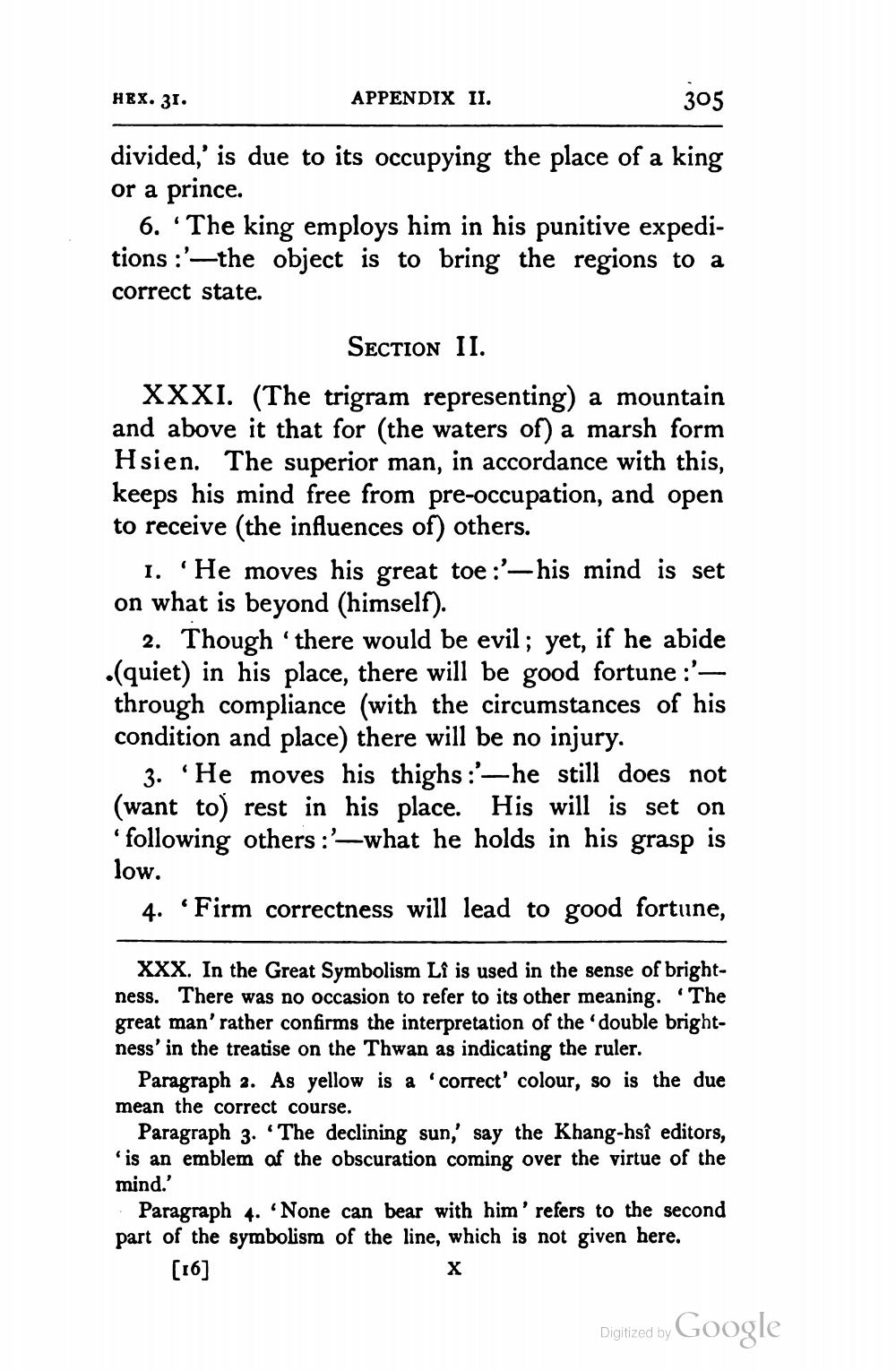________________
HEX. 31.
APPENDIX II.
305
divided,' is due to its occupying the place of a king or a prince.
6. The king employs him in his punitive expeditions :'-the object is to bring the regions to a correct state.
SECTION II. XXXI. (The trigram representing) a mountain and above it that for (the waters of) a marsh form Hsien. The superior man, in accordance with this, keeps his mind free from pre-occupation, and open to receive (the influences of) others.
1. 'He moves his great toe:'- his mind is set on what is beyond (himself).
2. Though there would be evil; yet, if he abide .(quiet) in his place, there will be good fortune :'through compliance (with the circumstances of his condition and place) there will be no injury.
3. He moves his thighs :-he still does not (want to rest in his place. His will is set on 'following others :'-what he holds in his grasp is low.
4. 'Firm correctness will lead to good fortune,
XXX. In the Great Symbolism Lî is used in the sense of brightness. There was no occasion to refer to its other meaning. The great man' rather confirms the interpretation of the double brightness' in the treatise on the Thwan as indicating the ruler.
Paragraph 2. As yellow is a 'correct' colour, so is the due mean the correct course.
Paragraph 3. 'The declining sun,' say the Khang-hsî editors, is an emblem of the obscuration coming over the virtue of the mind.'
Paragraph 4. None can bear with him' refers to the second part of the symbolism of the line, which is not given here.
[16]
Digitized by Google




